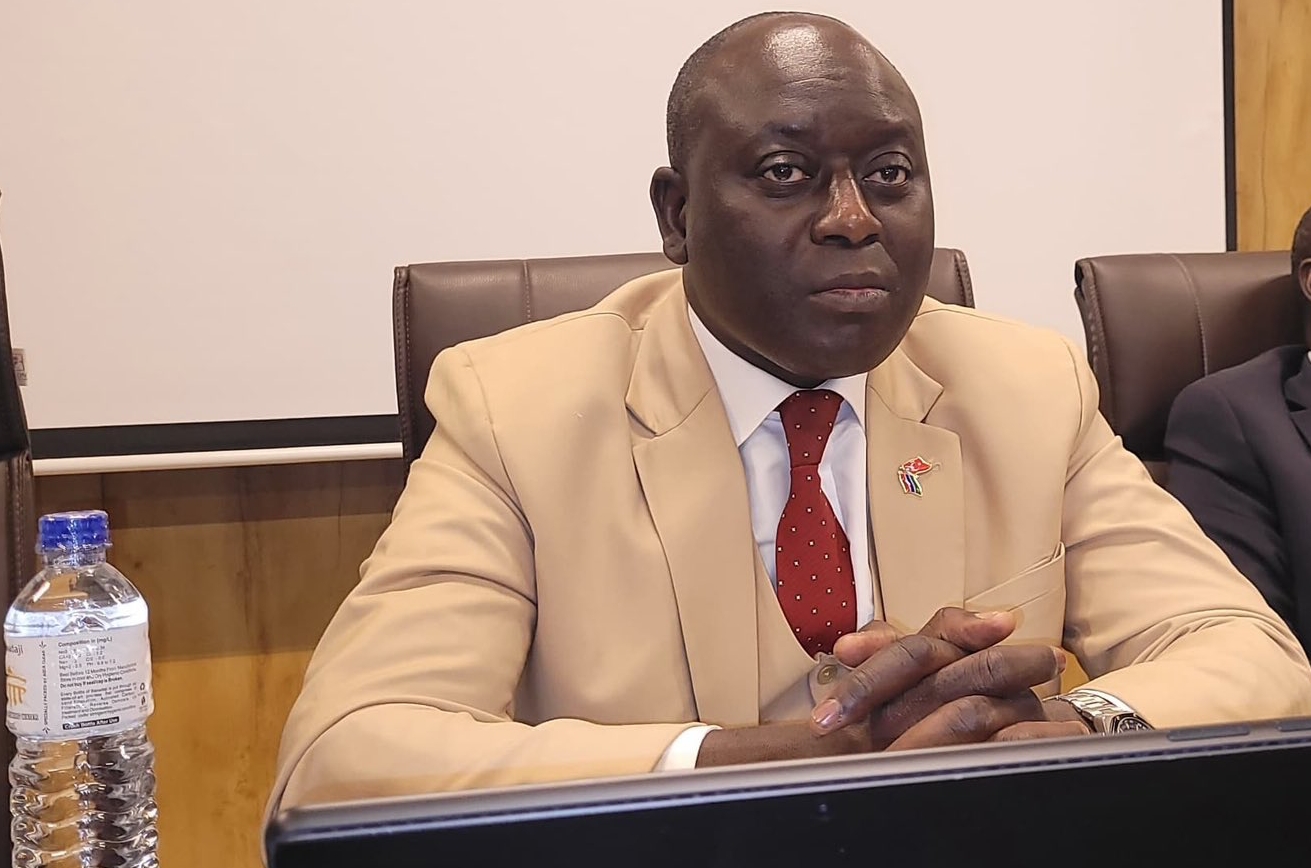Gambiaj.com – (BANJUL, The Gambia) – Despite repeated government pledges, road crashes continue to claim dozens of lives in The Gambia each month, a crisis Transport, Works, and Infrastructure Minister Ebrima Sillah now describes as a “national emergency.”
Speaking on Coffee Time with Peter Gomez, Sillah revealed that the country records between 30 and 60 accidents monthly, many resulting in death or permanent injury. “As small as we are, our accident rate is extremely high, and that’s unacceptable,” he admitted.
For many Gambians, however, such acknowledgments echo a history of unfulfilled promises. Successive administrations have pledged reforms—from stricter driver licensing to updated traffic laws—yet road deaths persist.
In 2022, a string of fatal crashes across the North Bank, West Coast, and Greater Banjul shattered families, often claiming young passengers and pedestrians. The government vowed sweeping reforms, including overhauling the 1948 Motor Traffic Act, but progress has been slow.
Sillah conceded that the outdated law still allows reckless drivers who kill to “walk free after paying D1,000,” a situation he called “ridiculous and outdated.” He said a revised Motor Traffic Act is being finalized for submission to the National Assembly “by the end of the year or early next year.”
But Gambians have heard similar promises before. In 2020, the Ministry of Transport pledged tighter licensing and a digital driver registration system after a surge in deadly crashes. Yet, unqualified drivers still dominate the roads.
According to Sillah, the ministry is now working with police, transport unions, and civil society to identify accident-prone zones and introduce safety measures such as road humps and warning signs.
“We have mapped some of these areas and are putting road furniture to alert drivers to dangerous bends or school zones,” he explained.
Still, many commuters complain that interventions remain superficial and largely urban-focused, while rural highways—where the highest fatalities occur—remain without signage or enforcement.
Broader systemic failures also persist: corruption in licensing, poor vehicle inspections, and weak regulation of commercial transport operators. Several high-profile crashes linked to faulty vehicles and overworked drivers remain unaddressed.
Sillah further announced a “fleet renewal program” to replace old, high-emission vehicles with safer, climate-friendly buses. But critics point to similar modernization plans announced in 2019 that never materialized.
Observers argue that what The Gambia needs is not more studies or committees, but genuine political will. “We’ve had countless promises,” one commuter in Senegambia said. “But the roads keep taking lives every week.”
Until concrete enforcement replaces rhetoric, campaigners warn, Gambian roads will remain among the deadliest in the region—a tragedy measured not in statistics, but in lives lost month after month.










